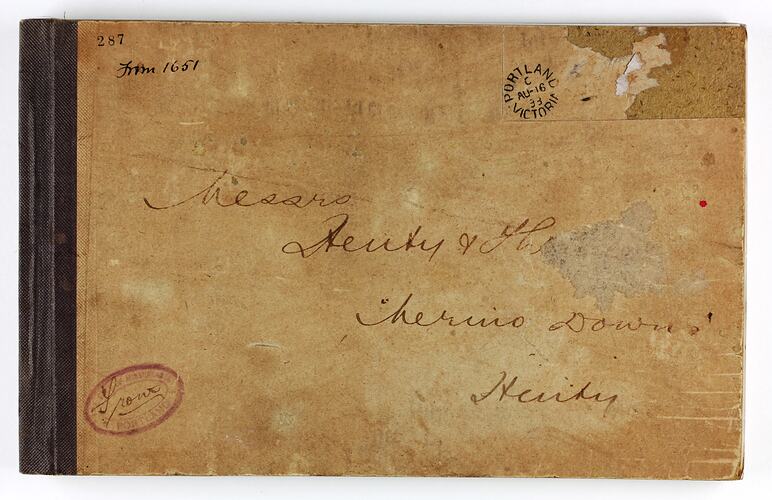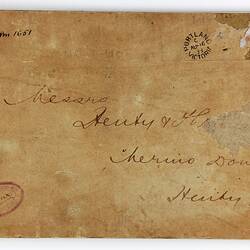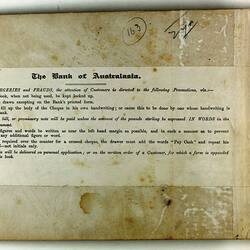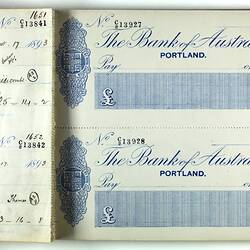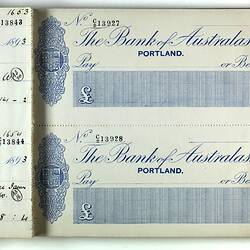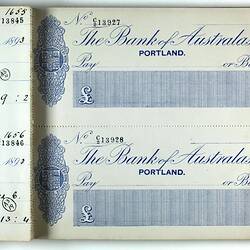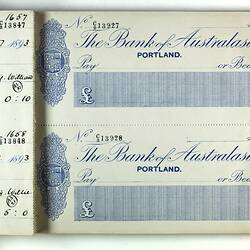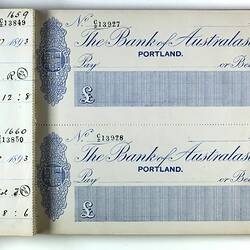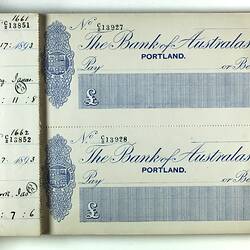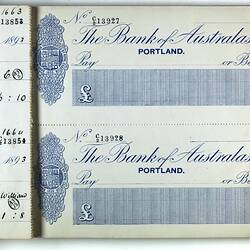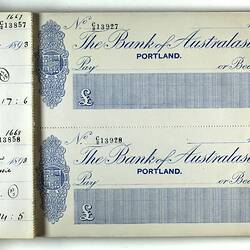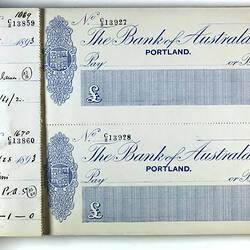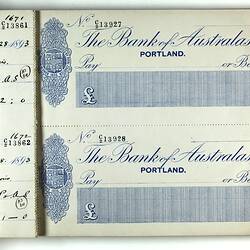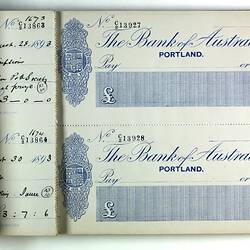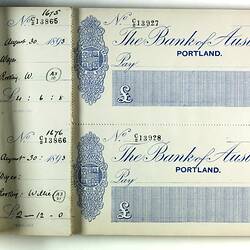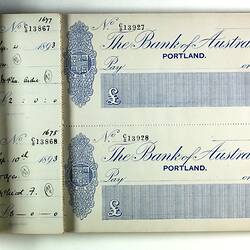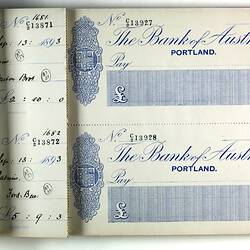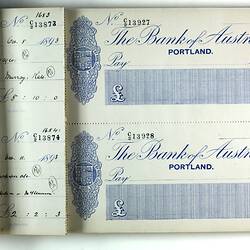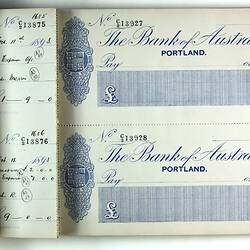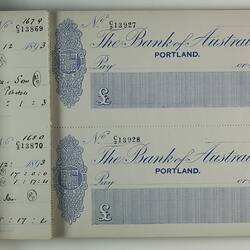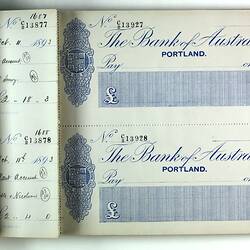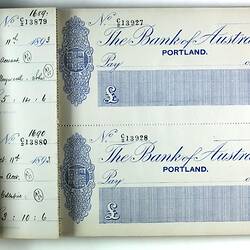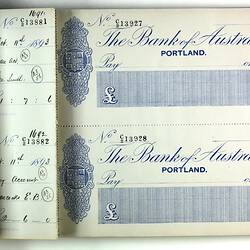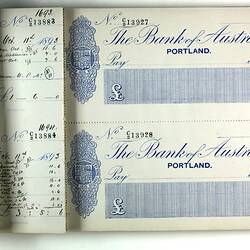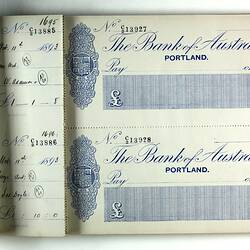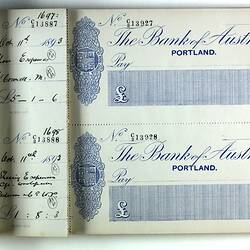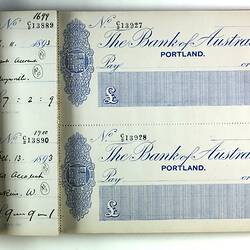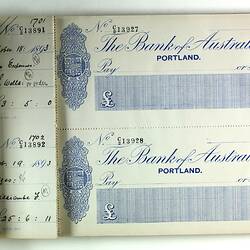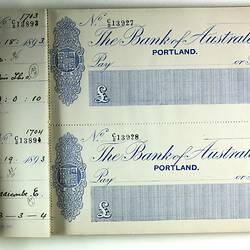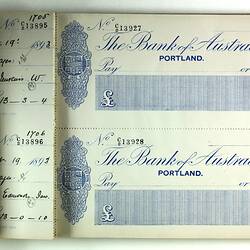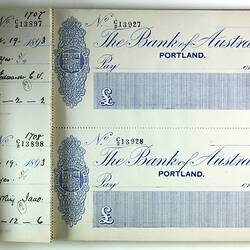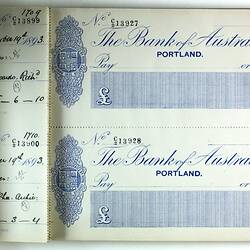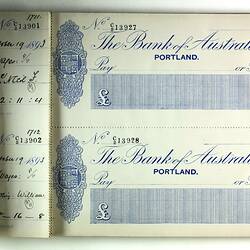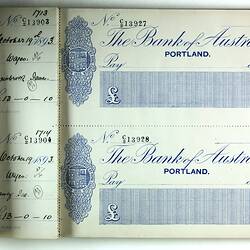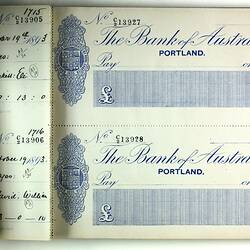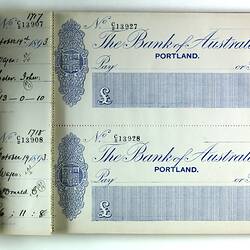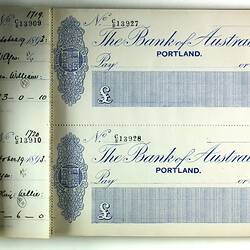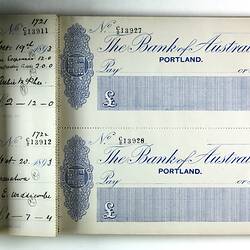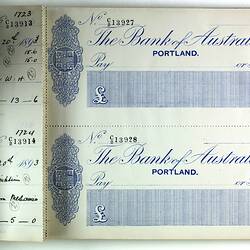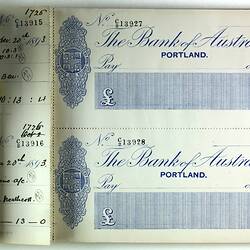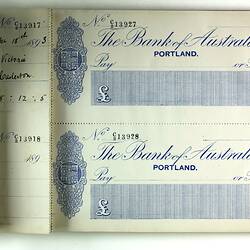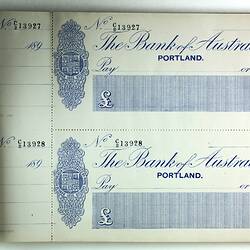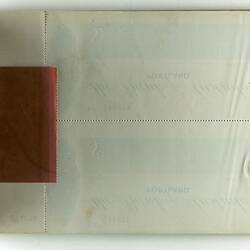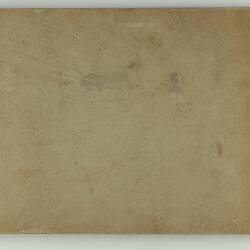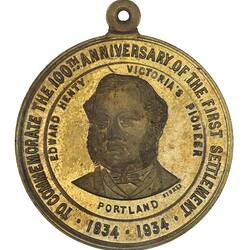Summary
Bank of Australia chequebook issued to Messrs Henty & H (illegible), Merino Downs, Portland, Victoria. The used cheque stubs, dated between 17 August and 18 December 1893, provide fascinating insight into the everyday expenses associated with running a large sheep station (farm) in colonial Victoria. Wages, regular subscriptions and accounts for show expenses, forage, newspapers, rabbits, etc were paid every two months; the bi-monthly wages bill was over £200 (well over $23,000 in 2015).
Merino Downs was one of a number of stations settled by the Henty brothers, Edward and Francis, in the 1830s. The brothers relocated to Portland Bay (then in New South Wales) from Tasmania in 1834, Francis bringing the first merino sheep to the region in December that year. Though initially squatters (i.e. they did not have legal ownership of the land they farmed), the brothers were granted pre-emptive rights over their properties in the 1840s. Merino Downs was initially run by Edward Henty, then his brother John who mismanaged it so badly he was forced to leave the property by his brothers. Francis Henty took over the management of the property in 1842, managing it until his death in 1889. Merino Downs is still managed by descendants of the Henty family.
Physical Description
Bound chequebook with brown cardboard cover, blue cloth along spine and printed cheques within. Two cheques per page, horizontally. Each cheque is printed in blue ink, with a black cheque number, perforated edges and corresponding stub. Completed stubs are handwritten in ink. The cover is post marked Portland, with additional handwritten text across the cover in ink.
More Information
-
Collecting Areas
Numismatics & Philately, Public Life & Institutions, Migration & Cultural Diversity, Sustainable Futures
-
Acquisition Information
Donation from Mrs Joan Bates, 23 Mar 2015
-
Date Issued
1893
-
Place & Date Used
Merino Downs, Henty, Victoria, Australia, 17 Aug 1893 - 18 Dec 1893
-
Issued By
The Bank of Australasia, Portland, Victoria, Australia, 1893
-
Inscriptions
Handwritten on front cover: From 1651; Messrs/ Henty & H (illeg)/ Merino Downs/ Henty Stamped, upper left corner, front cover: 287 Stamped, upper right corner, front cover: PORTLAND VICTORIA/ C/ AU-16/ 33 Indistinct stamp and handwriting, lower left corner, front cover
-
Material
Paper
-
Classification
-
Category
-
Discipline
-
Type of item
-
Overall Dimensions
270 (Width), 15 (Depth), 170 (Height)
-
Keywords
Banking, Cheques, Agricultural Finance, Settlement, Pioneers, Farming Information, Economics
